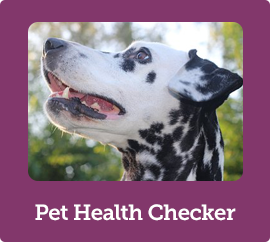
Dogs are categorized as seniors around 7-8 years of age for small breeds and larger breeds are considered seniors at 5-6 years. Cats are considered to be seniors between the ages of 7-10 years. Older dogs and cats may experience health changes associated with aging, and may be at a greater risk of developing age-related medical conditions.
The nutritional requirements for dogs and cats change as they get into their senior years. Decreased appetite, changes in metabolism, reduced mobility, and behavioural changes are all commonly linked with aging. Senior dogs and cats are also at an increased risk for developing various medical conditions, like arthritis, heart disease, and kidney disease. For these reasons, regular veterinary monitoring is crucial during their senior life stage. As your dog or cat ages, continue to feed foods rich in antioxidants and essential nutrients to keep them active and alert. Older pets can continue to have a high quality of life and the food they eat plays an essential role in their overall health and well-being. Balanced nutrition is an important part of an active, healthy lifestyle.
Please don’t hesitate to contact us if you have any concerns regarding your senior pet’s nutrition.




